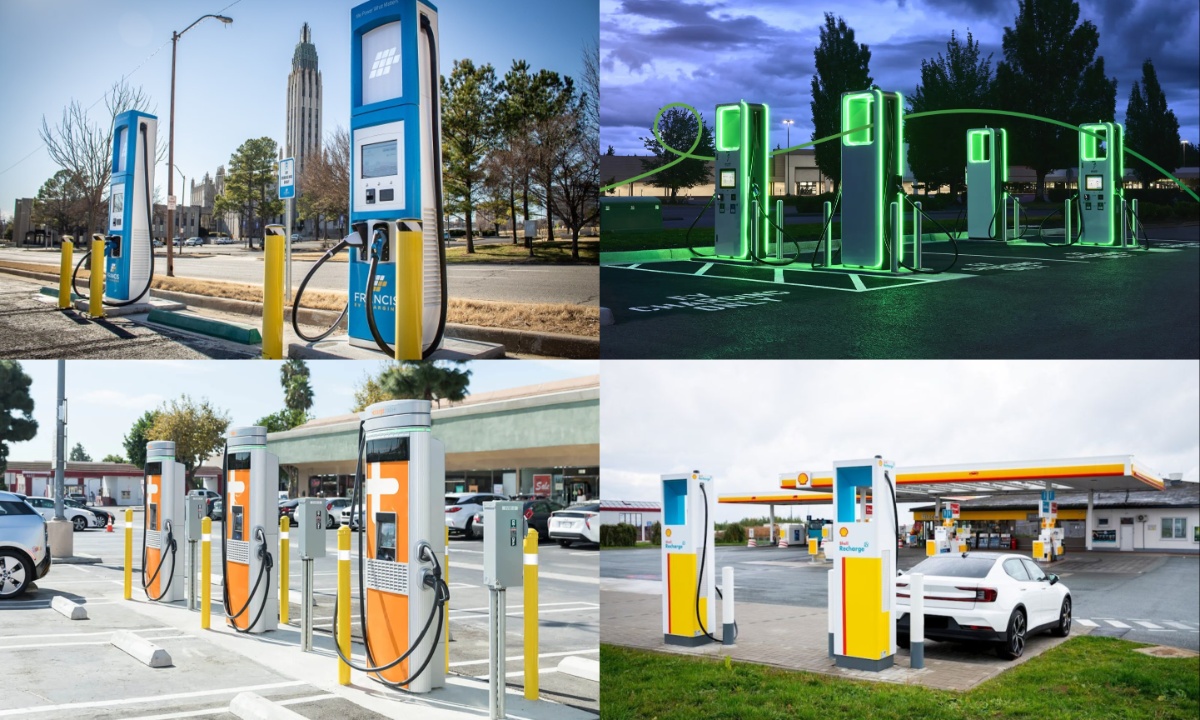Electric cars are gaining popularity in the U.S., but concerns remain about their practicality, particularly due to long charging times and limited infrastructure. These issues are especially frustrating for long-distance travelers.
However, real-world tests suggest that public charging is generally sufficient and cost-effective, even for those without home charging options. As a result, the expansion of EV charging networks is crucial for making electric vehicles a more convenient choice for daily use.
Fortunately, numerous EV charging companies are working to improve infrastructure, with both new and established players striving to enhance accessibility and efficiency. This growing industry is driven by innovators focused on reducing carbon footprints and improving the EV ownership experience.
To highlight the top performers in the field, this article ranks the best EV charging companies based on their number of Level Three DC fast chargers, using data from trusted sources like Electrek, MotorTrend, and Car and Driver.
1. OPConnect
OPConnect is an EV charging company specializing in commercial vehicles and fleet services. It provides charging solutions for businesses, municipalities, and organizations looking to establish charging infrastructure.
With a focus on accessibility and convenience, OPConnect aims to support the growing adoption of electric vehicles. Currently, the company operates 28 fast chargers across the U.S., making it a modest but reliable player in the EV charging industry.
Founded by a team of engineers and science experts in Portland, Oregon, OPConnect offers a range of charging solutions, including both Level Two and Level Three charging stations.
These stations are equipped with SAE J1772 connectors, ensuring compatibility with most electric vehicles on the market. Designed for efficiency, OPConnect’s stations can charge up to four vehicles simultaneously, making them a practical option for both public and private charging deployments.
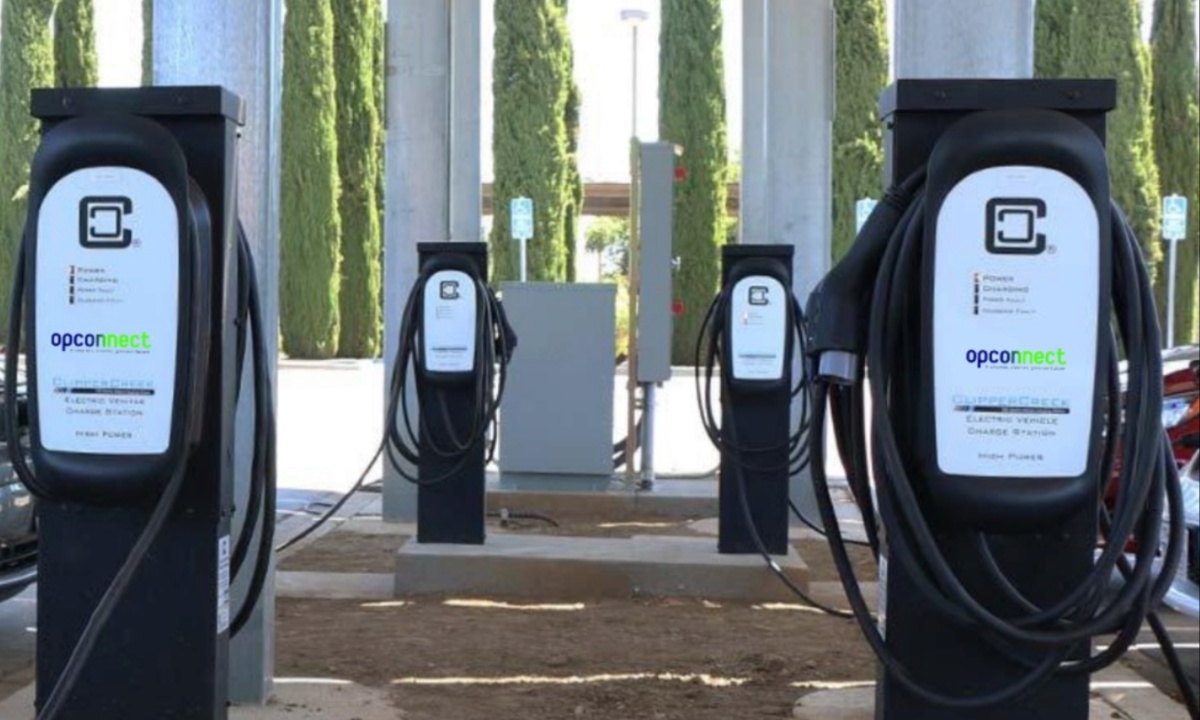
OPConnect’s network spans multiple states, including Washington, Oregon, California, and Hawaii, enhancing accessibility for EV owners in these regions. The company’s charging stations support various payment methods, including membership cards, credit cards, and email-based transactions, with no membership required for use.
By offering flexible and versatile charging solutions, OPConnect continues to contribute to the expansion of EV infrastructure in key areas.
2. Blink
Blink Charging is a growing power supply company focused on automotive electrification, providing EV charging solutions for both private and public use. As a global provider, Blink facilitates the transition to electric transportation by offering durable and affordable charging equipment.
While its core business revolves around EV charging networks and private charging equipment, it also provides public charging services. Currently, Blink operates 154 fast chargers across the U.S., helping to expand the nation’s EV infrastructure.
The company’s charging networks use proprietary cloud-based software to efficiently manage, monitor, and maintain charging stations. Blink has formed strategic partnerships to deploy its infrastructure in various locations, including parking facilities, residences, workplaces, and airports.
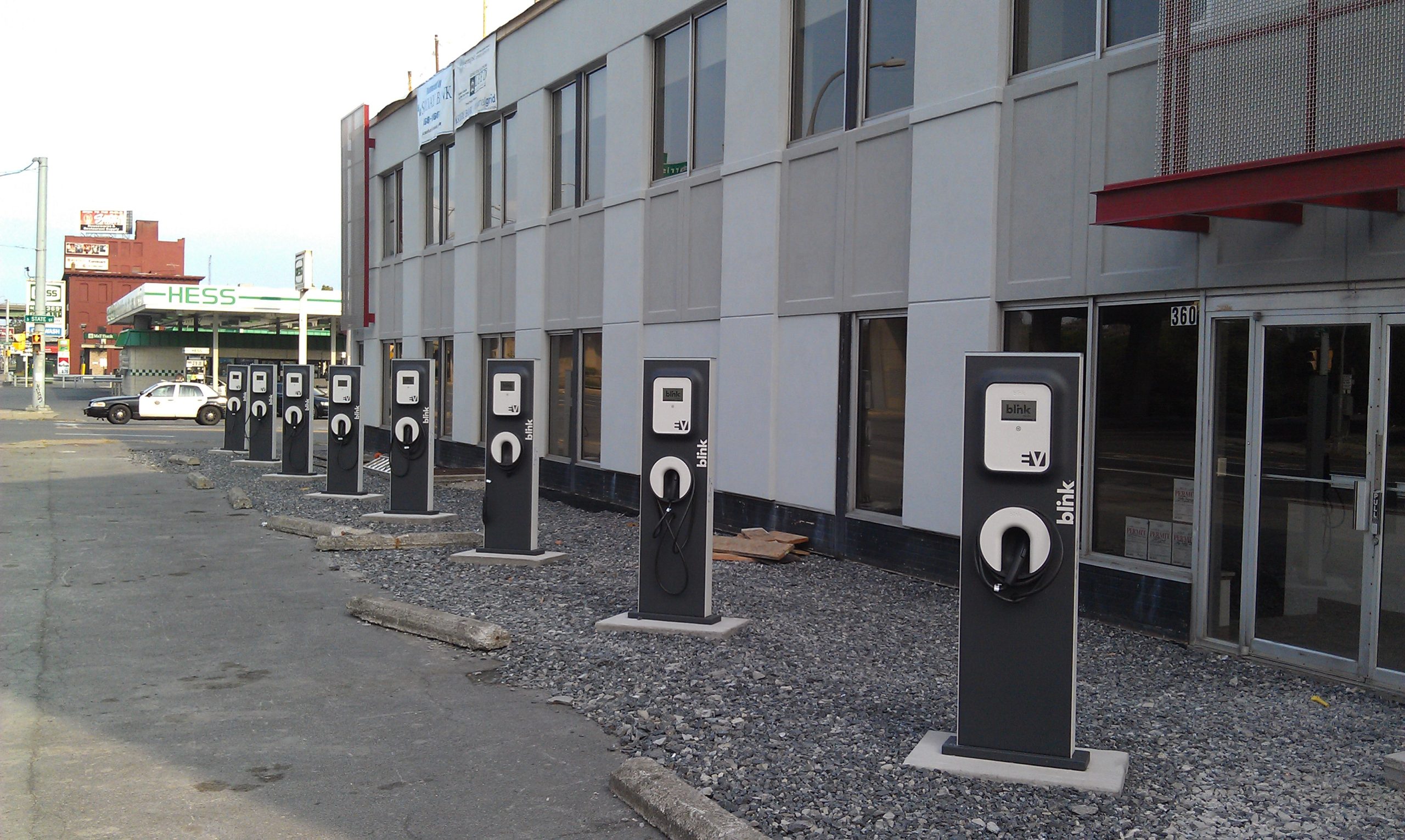
Its publicly traded status on the NASDAQ under the ticker symbol “BLNK” highlights its growing presence in the EV industry. Blink’s mission is to make EV charging more convenient and accessible, ensuring a seamless transition for electric vehicle owners.
In partnership with the City of Frederick, Blink is installing 20 charging stations across four parking garages—East All Saints, Carroll Creek, Court Street, and West Patrick. These stations are designed to serve residents without home charging options and accommodate city visitors.
By expanding its charging infrastructure and offering membership options, Blink aims to support a more accessible and widespread EV network while revolutionizing urban transportation.
3. EVConnect
EVConnect is best known for its household charging equipment, but it also operates a small network of fast chargers across the U.S. The company was founded in 2009 by an industry expert who previously worked at AeroVironment, the country’s first manufacturer of EV fast-charging stations.
Recognizing the need for charging infrastructure among site owners, parking lot managers, fleet operators, and utilities, he established EVConnect to provide accessible and reliable EV charging solutions.
The company operates thousands of charging stations nationwide, though only a fraction of them are Level Three DC fast chargers. EVConnect offers both Level Two and fast charging options to accommodate various EV models and needs.
Its stations are deployed in public spaces, workplaces, multifamily residences, and commercial properties. Users appreciate EVConnect’s reliability and user-friendly interface, which simplifies locating and using charging stations.
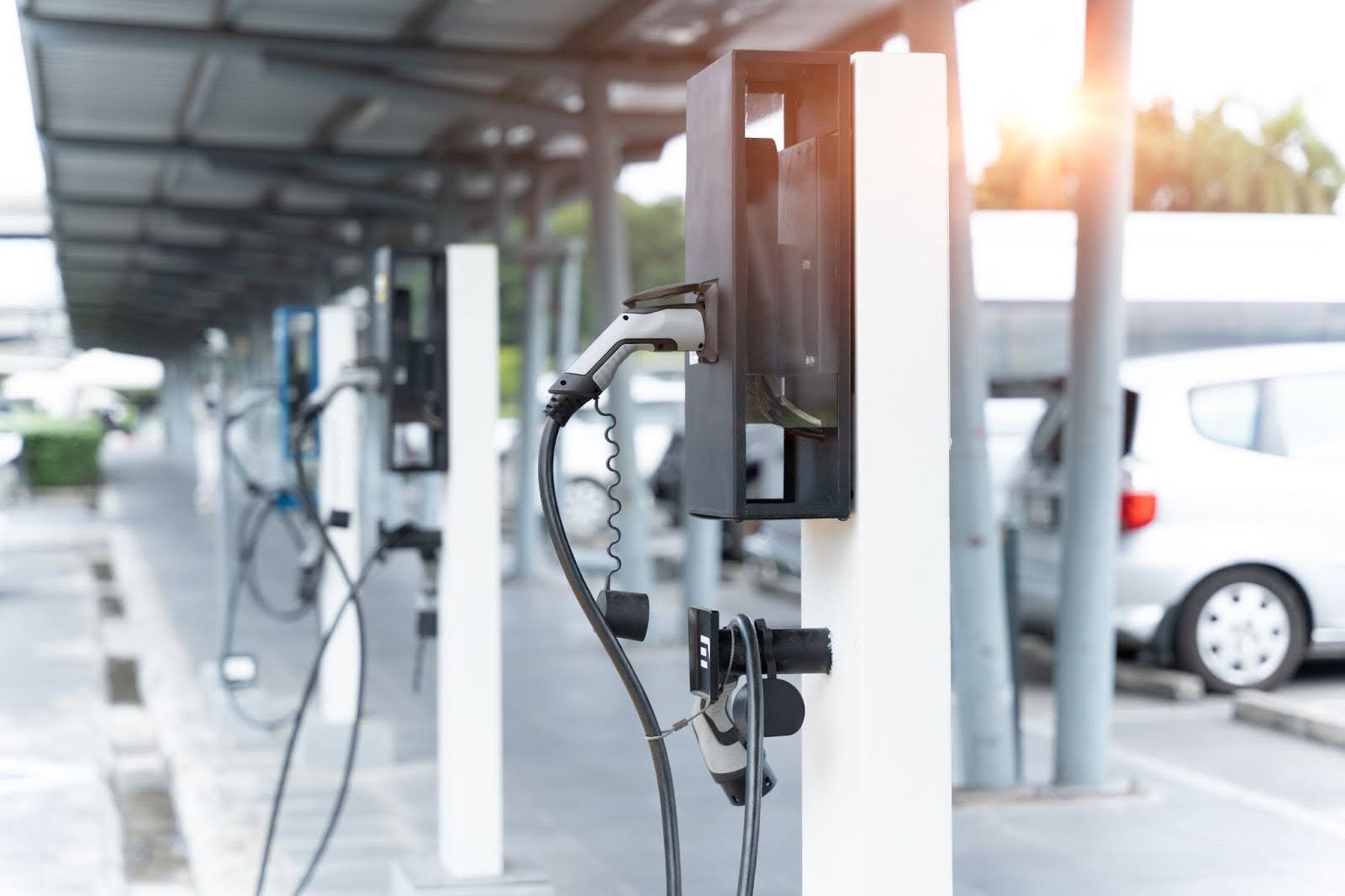
The company actively expands its network through partnerships with businesses and organizations, supporting EV adoption and sustainability efforts.
Schneider Electric recently acquired EVConnect, with plans to scale the brand into a global competitor. One of its latest projects includes a collaboration with General Motors, allowing GM EV owners to access EVConnect’s charging network without needing to swipe a card or make a payment.
While EVConnect currently operates around 3,500 charging stations nationwide, only 183 of them are DC fast chargers, highlighting its focus on slower but widely available charging solutions.
4. EVCS
EVCS is a mid-sized player in the EV charging industry, operating 194 locations across the U.S. with a total of 360 DC fast chargers. It stands out by offering a subscription-based charging model, allowing users unlimited access to its charging stations for $200 per month.
This pricing structure is particularly beneficial for EV drivers who frequently travel long distances and require more than eight charges per month, making EVCS a cost-effective option for high-mileage users.
The company provides both Level Two and Level Three fast charging solutions for commercial and residential use. EVCS stations are equipped with advanced technology to ensure reliable and efficient charging, catering to a wide range of electric vehicles. Its charging network spans multiple states, increasing accessibility for EV owners.
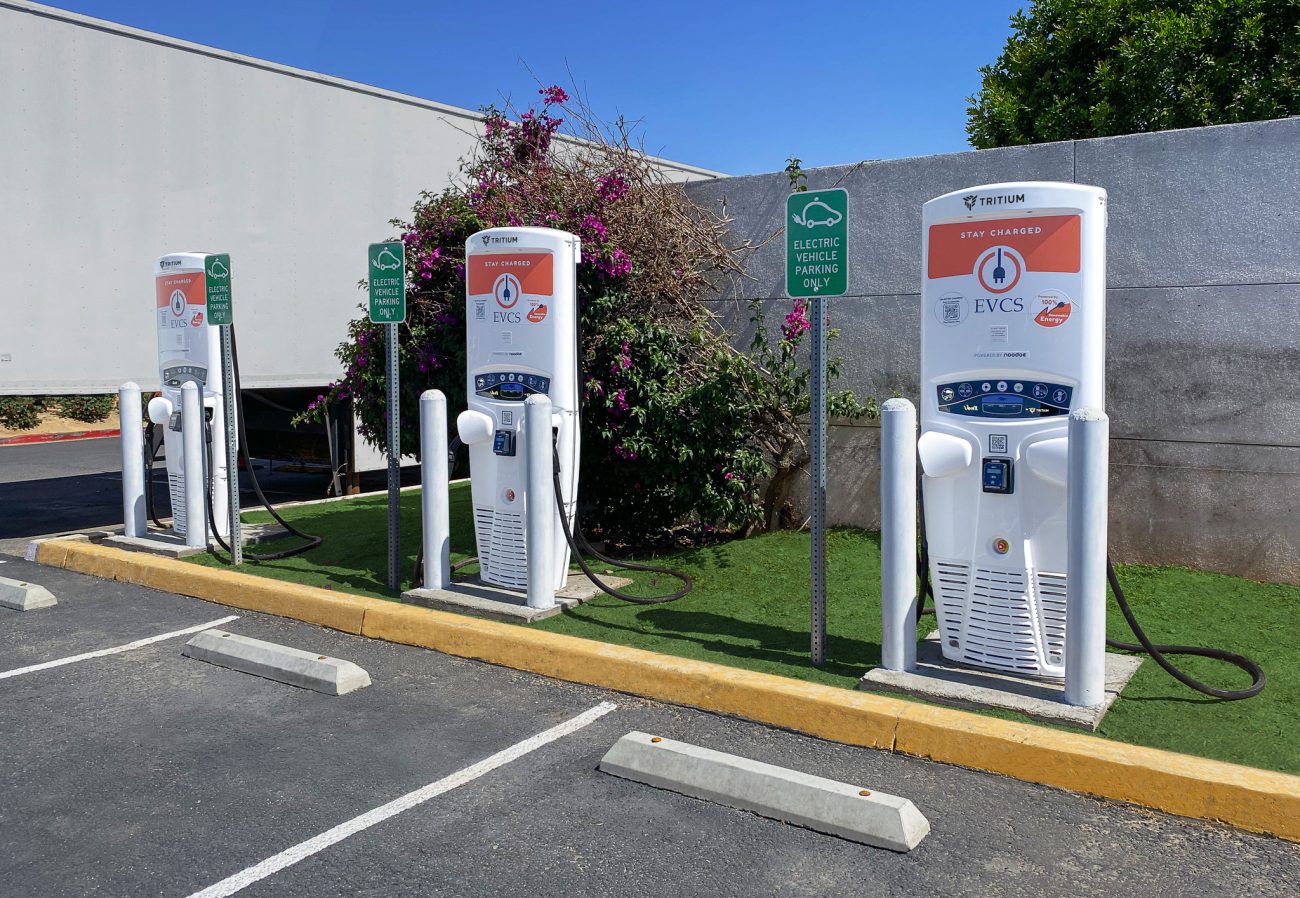
EVCS prioritizes customer satisfaction by offering an intuitive user interface and responsive customer support. The company also collaborates with businesses, municipalities, and property owners to expand its infrastructure and encourage the adoption of electric vehicles.
Founded in 2018, EVCS has rapidly become one of the largest and fastest-growing public EV charging networks in the U.S. Its mission is to decarbonize transportation by making clean, carbon-free electric vehicles more accessible to consumers.
To achieve this, EVCS partners with government agencies and provides site owners with a cost-free charging deployment solution, covering all capital and construction expenses. By managing projects from start to finish, EVCS is helping to build a more sustainable and widespread EV charging infrastructure.
5. Francis Energy
Francis Energy is a growing EV charging provider specializing in direct current fast charging across the Midwest. With a network of 154 stations housing 545 fast chargers, the company has ambitious plans to expand nationwide in the coming years.
Despite being a relatively small player in the industry, Francis Energy has made notable progress since its founding in 2015. Like many competitors, it offers a dedicated smartphone app for users to locate and manage charging sessions.
The company’s roots trace back to the Francis Oil and Gas Company, founded by the current owner’s great-grandfather in 1969.
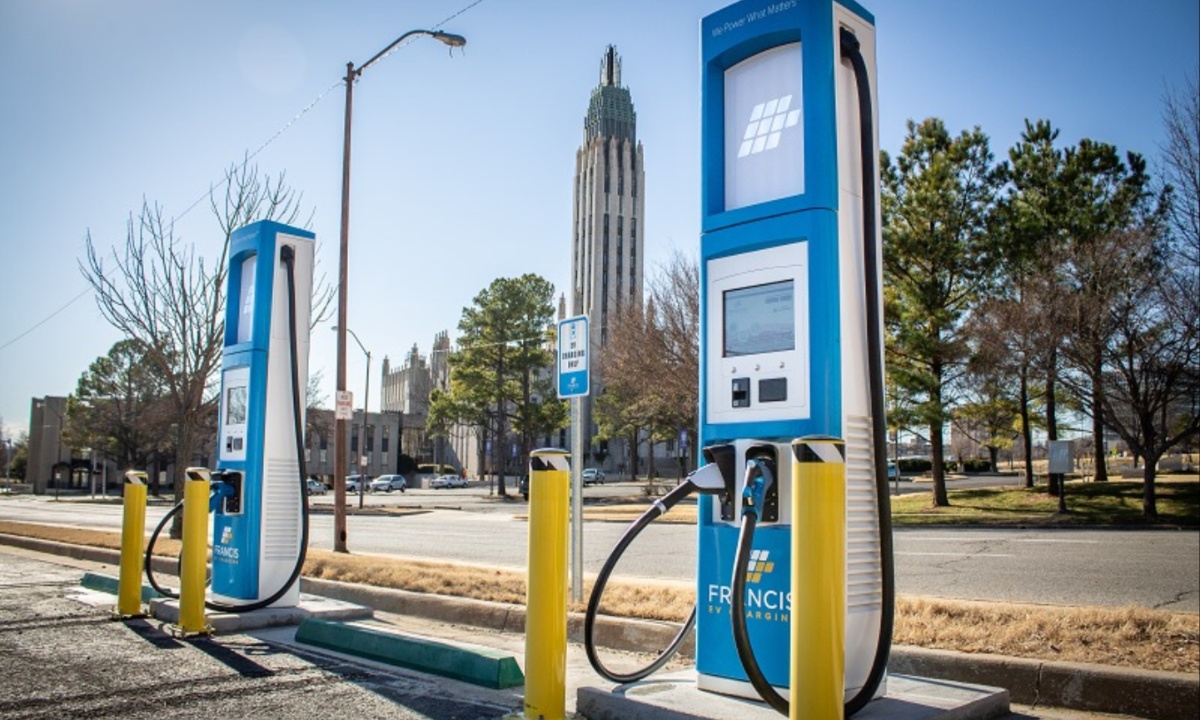
Initially, Francis Energy focused on developing charging stations in Oklahoma, but with significant state funding, it expanded into Alabama and New Mexico. Its growth has been fueled by strategic investments and government support, allowing it to build a strong regional presence.
Now, Francis Energy is working to extend its network even further, with projects currently underway in Colorado, Kentucky, Ohio, and Pennsylvania. Its goal is to establish a more comprehensive fast-charging infrastructure across the U.S., making electric vehicle ownership more convenient for drivers in underserved areas.
As the company continues to expand, it is positioning itself as a key player in the transition to sustainable transportation.
Also Read: 10 Best Cars With Built-In Navigation for 2025 and 2026
6. Shell Charging Network
Shell has rapidly expanded its presence in the EV charging industry by acquiring smaller companies like Greenlots and Volta. These acquisitions have strengthened its charging network, allowing it to support all plug connector types and offer a versatile charging experience.
While Shell does not disclose the exact number of charging stations in the U.S., estimates suggest it operates around 10,000, with approximately 3,000 located at its fuel stations. Its growing infrastructure makes it a major player in the transition to electric mobility.
By integrating Greenlots and Volta into its operations, Shell has gained access to innovative charging technology and expertise in energy management solutions. These companies have helped enhance Shell’s ability to provide reliable and efficient charging services for EV owners.
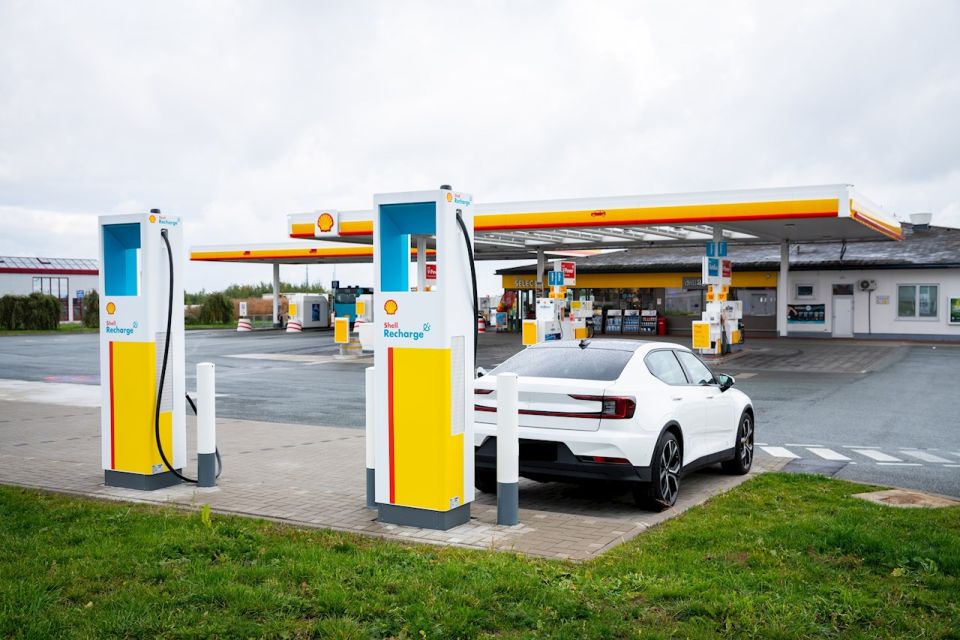
Shell’s charging network is part of its broader commitment to sustainability and renewable energy, reinforcing its role as a leader in the evolving EV infrastructure market. With its expanding footprint, Shell continues to leverage new technologies to improve the overall charging experience for drivers.
Currently, Shell operates 582 DC fast chargers across the U.S. and provides a user-friendly app that helps EV drivers locate stations, monitor charging status, and manage payments.
The company has set ambitious goals for its charging infrastructure, aiming to establish 500,000 stations globally by 2025. This aggressive expansion plan underscores Shell’s commitment to supporting the widespread adoption of electric vehicles and transitioning toward a cleaner energy future.
7. ChargePoint
ChargePoint is the largest EV charging service provider in the U.S., with over 25,000 public charging stations, though only 1,800 of them are fast chargers. The company also operates an extensive network of online personal chargers across 14 different countries.
ChargePoint’s expansion in the charging infrastructure business began in 2017 when it acquired more than 9,800 charging stations from General Electric, helping it quickly establish a dominant position in the industry.
ChargePoint’s charging network spans various states, cities, and communities, offering reliable and user-friendly charging solutions. Its stations are equipped with advanced features such as mobile app integration and real-time status updates, ensuring a seamless experience for EV drivers.
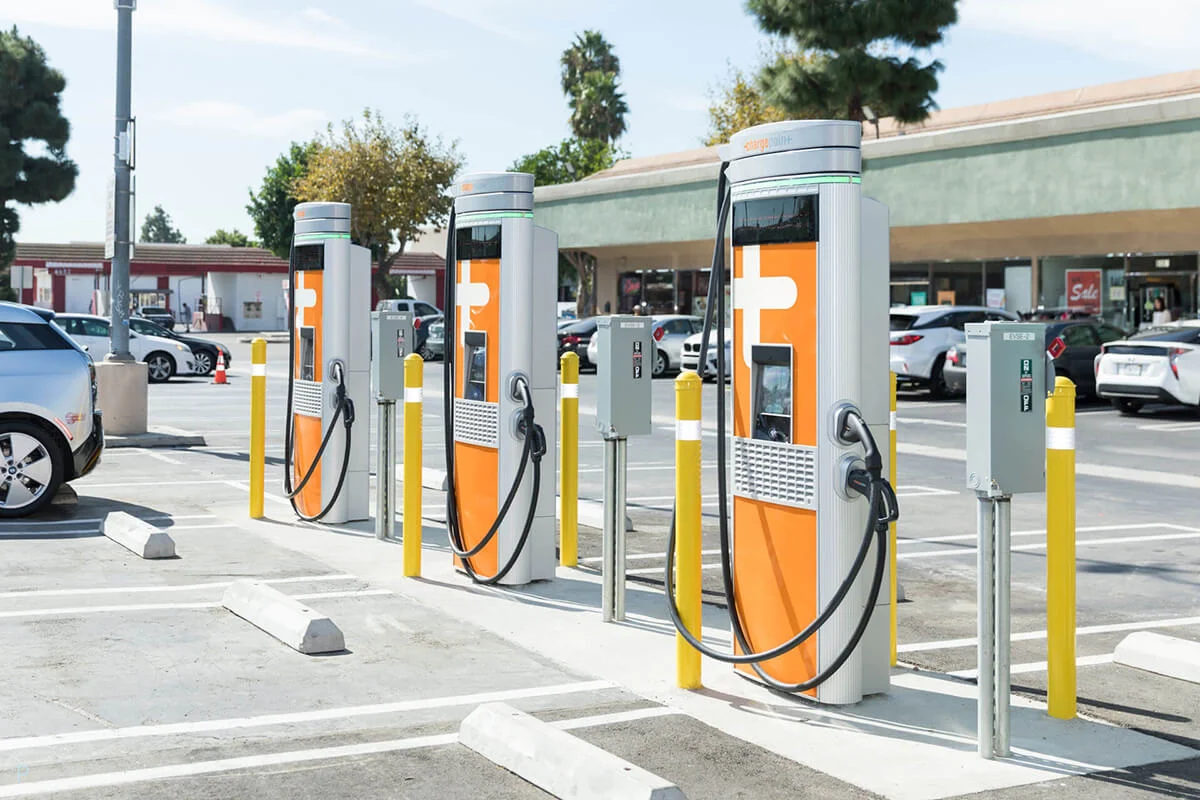
The company actively collaborates with businesses, municipalities, and property owners to expand charging infrastructure and encourage electric vehicle adoption. ChargePoint remains dedicated to improving network reliability and customer satisfaction, making it a key player in the EV charging market.
Recently, ChargePoint partnered with Mercedes-Benz to build 2,500 fast chargers at 400 charging hubs across the U.S., further strengthening its presence in the industry. These chargers will be accessible to EV owners from all manufacturers, enhancing convenience and accessibility.
One of its most notable innovations is the liquid-cooled modular 400 kW Express Plus Family charging system in Las Vegas, which supports multiple charging connectors, including Tesla’s. With these developments, ChargePoint continues to push forward in expanding its fast-charging capabilities.
8. EVgo
EVgo is the third-largest EV charging network in the U.S., operating over 1,900 fast chargers and 29,000 Level Two chargers across 950 locations. The company also owns Recargo, the developer of the PlugShare charging app, making it a key player in the EV ecosystem.
Although EVgo has an official partnership with General Motors, it supports nearly all electric vehicle brands. To cater to different customer needs, it offers multiple charging plans, including a standard pay-as-you-go option and an $11.99 per month PlusMax package, which provides additional benefits and charging discounts.
EVgo’s charging stations are strategically located along major highways and urban centers, making long-distance EV travel and daily commuting more convenient. Its fast chargers utilize advanced technology to provide speeds ranging from 50 kW to 350 kW, ensuring quick and efficient recharging.
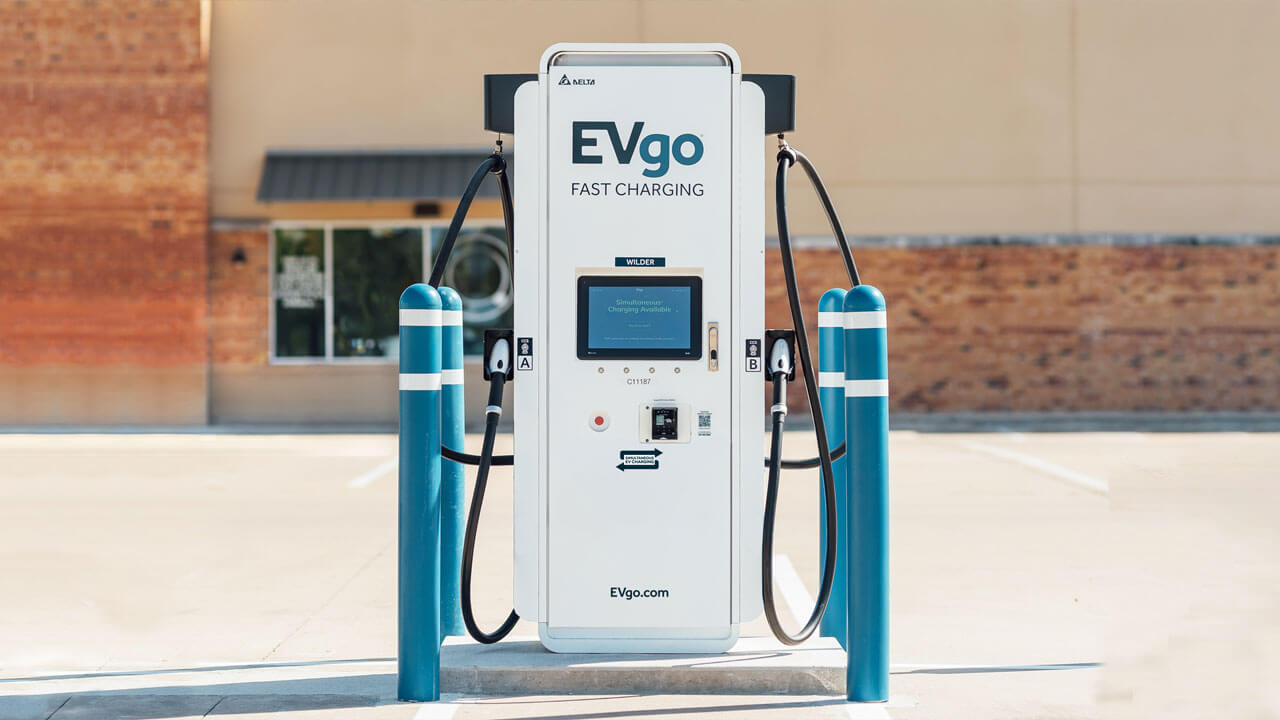
The company prioritizes sustainability by sourcing electricity from renewable energy whenever possible and implementing energy-efficient practices. It collaborates with automakers, utilities, and government agencies to expand its network and promote the adoption of clean transportation in the U.S.
All EVgo stations support CCS Combo 1 and CHAdeMO connectors, with select locations also offering Tesla plugs. To further its expansion, EVgo has signed a major deal with grocery retailer Meijer, strengthening its presence in the Midwest.
Additionally, it offers discounts to Uber drivers and maintains a long-running partnership with Hertz, allowing EV renters to access its facilities at reduced rates. These initiatives position EVgo as a leading provider of fast, accessible, and sustainable EV charging solutions.
9. Electrify America
Electrify America, Volkswagen Group’s official charging network, operates 3,892 fast chargers across 850 stations nationwide. The network supports CCS and CHAdeMO connectors, with plans to integrate NACS compatibility by 2025.
In most states, users are billed per kWh consumed, but in Wyoming and Montana, fees are based on time spent charging.
Electrify America accommodates a wide range of EV manufacturers, including BMW, Ford, Hyundai, Kia, Lucid, Mercedes-Benz, Polestar, VinFast, and Volvo, making it one of the most versatile charging networks in the country.
The company was established as part of Volkswagen’s clean transportation investment following the diesel emissions scandal. Electrify America has positioned itself as a leader in EV charging infrastructure, with over 650 stations spanning 45 states. Strategically placed along highways and in urban centers, its chargers provide convenient access for EV drivers nationwide.
Offering some of the fastest charging speeds available, the network includes Ultra Fast 150 kW and Hyper Fast 350 kW chargers, significantly reducing wait times for compatible vehicles. Electrify America also prioritizes user experience, ensuring reliable connectivity, intuitive interfaces, and strong customer support.
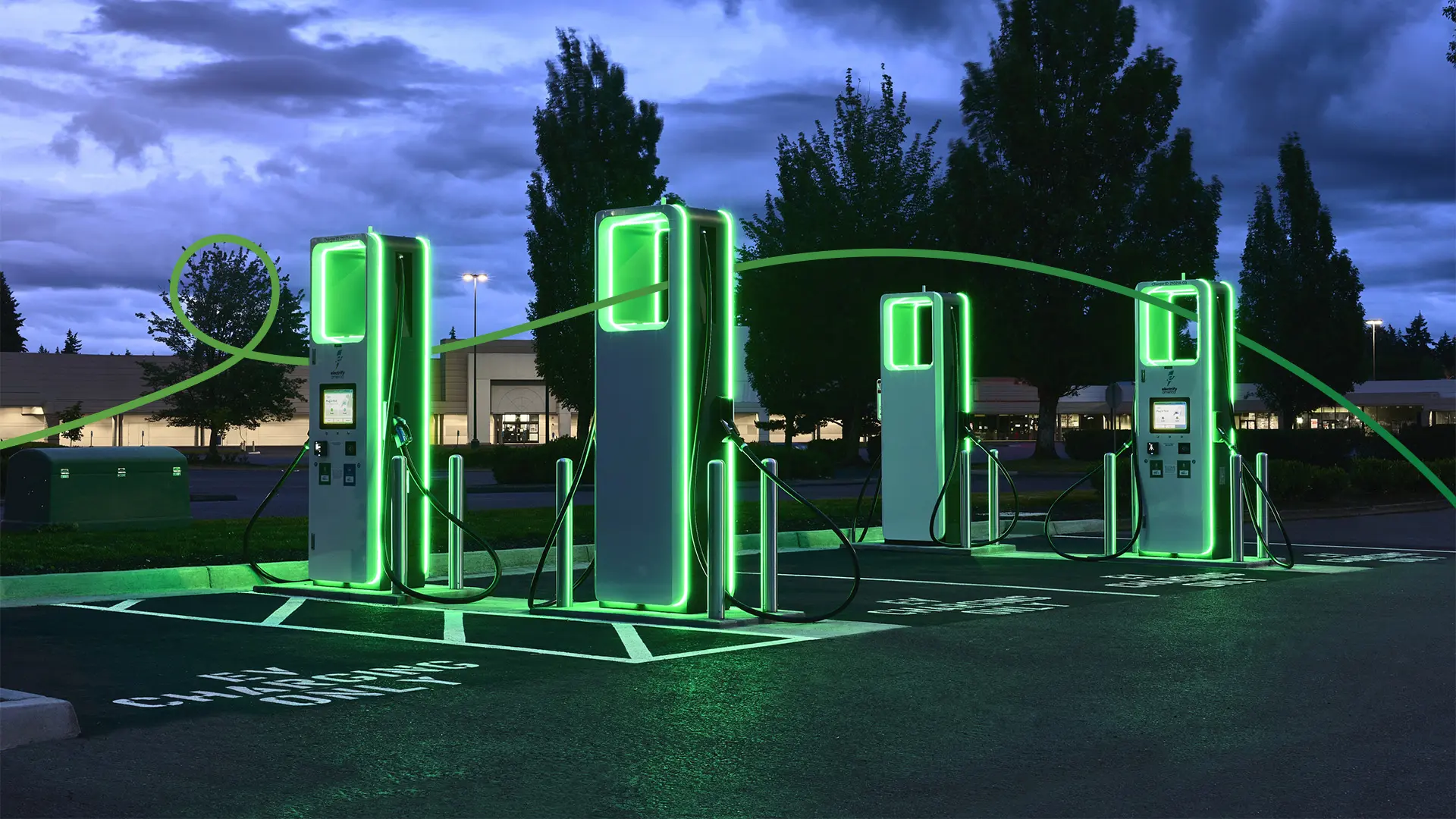
Despite its rapid expansion and technological advancements, Electrify America has faced reliability issues, with some stations experiencing prolonged downtime due to maintenance problems. These concerns have led to criticism from EV owners who rely on its infrastructure.
However, the company has acknowledged these issues and is actively working to improve station reliability and maintenance. As it continues to expand, Electrify America remains a major player in accelerating the transition to clean transportation through its extensive and evolving charging network.
10. Tesla
Tesla leads the global and national EV charging industry with a vast Supercharging network. The company has built over 50,000 Superchargers worldwide, with 2,300 stations across the U.S., totaling 21,852 charging points.
Tesla strategically places its Superchargers along major highways and frequently traveled roads, making them one of the most convenient and cost-effective options for Tesla owners.
The network’s seamless integration with Tesla vehicles ensures a hassle-free charging experience, directing drivers to available Superchargers via in-car navigation.
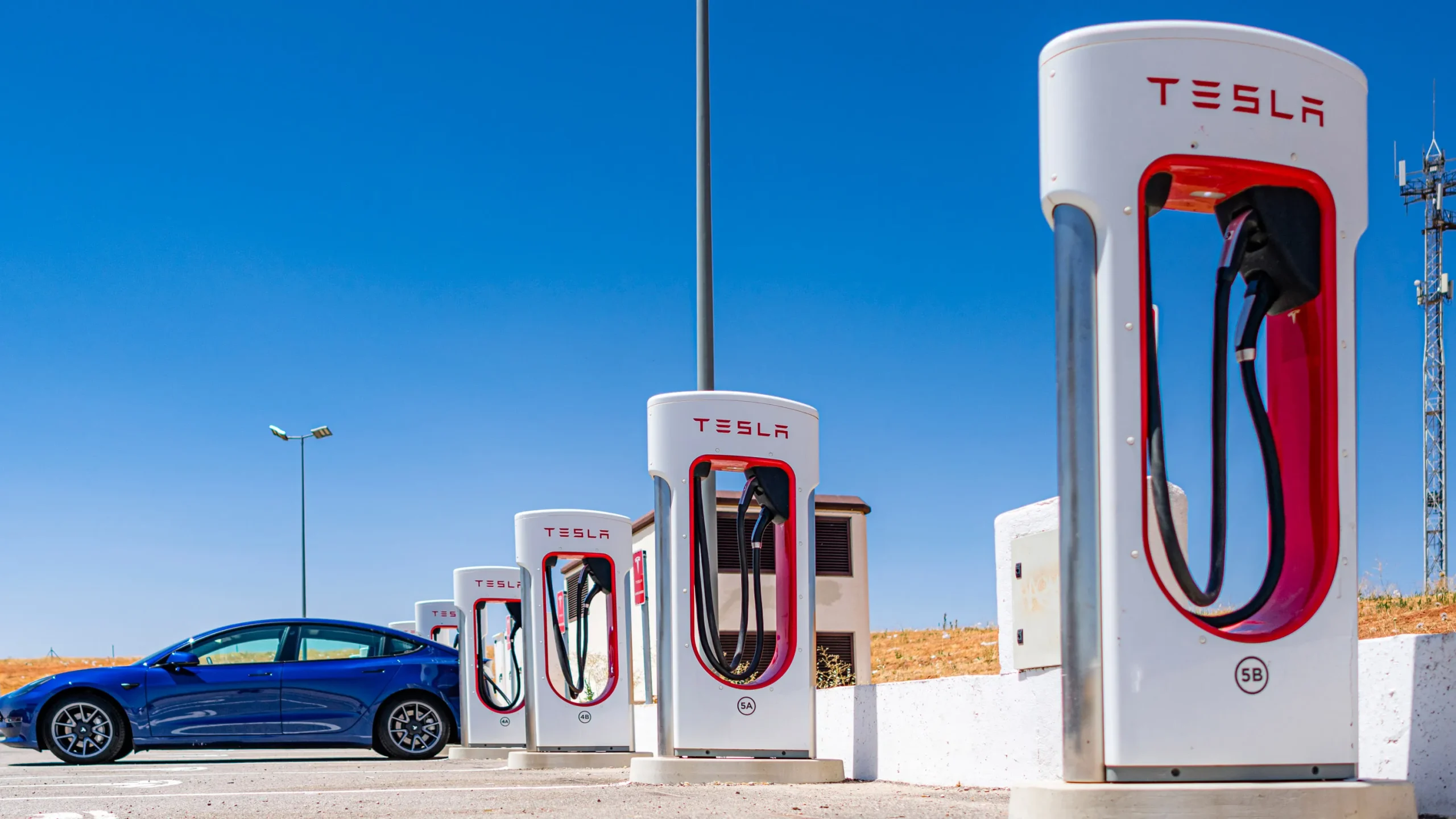
Tesla’s Supercharging network is the most comprehensive fast-charging infrastructure in the U.S., offering some of the highest charging speeds in the industry. With select stations delivering up to 250 kW of power, Tesla vehicles can recharge quickly, reducing wait times for drivers.
The company continually expands and enhances its network, working on software improvements to boost charging speeds to 350 kW. Tesla’s Superchargers play a critical role in its mission to accelerate the adoption of sustainable energy, ensuring that Tesla owners have access to a reliable and widespread charging solution.
To increase accessibility, Tesla introduced the Magic Dock connector, allowing non-Tesla EV owners to use its charging network. As a result, several automakers have begun striking deals with Tesla to grant their vehicles access to its expansive Supercharger infrastructure.
Additionally, Tesla’s home charging equipment has earned strong reviews for its speed, ease of use, and reliability. With ongoing innovations and expansion efforts, Tesla remains the dominant force in EV charging, setting the standard for the industry.
As electric vehicle adoption continues to rise, the expansion of reliable and efficient charging infrastructure is more crucial than ever. Leading companies such as Tesla, Electrify America, and EVgo are driving this transformation by increasing the number of fast chargers, improving charging speeds, and enhancing accessibility.
Despite ongoing challenges like station reliability and infrastructure gaps, continued investments and technological advancements are making public charging more convenient and cost-effective for EV owners.
The future of EV charging looks promising as automakers, charging providers, and policymakers collaborate to build a more extensive and seamless network.
Innovations such as faster charging speeds, improved station maintenance, and user-friendly payment models are helping to eliminate range anxiety and encourage more drivers to switch to electric vehicles.
As these networks continue to expand, the transition to clean transportation will become increasingly practical, accelerating the shift toward a more sustainable future.
Also Read: 10 Best Cars for Weekend Road Trips and Cross-Country Drives

